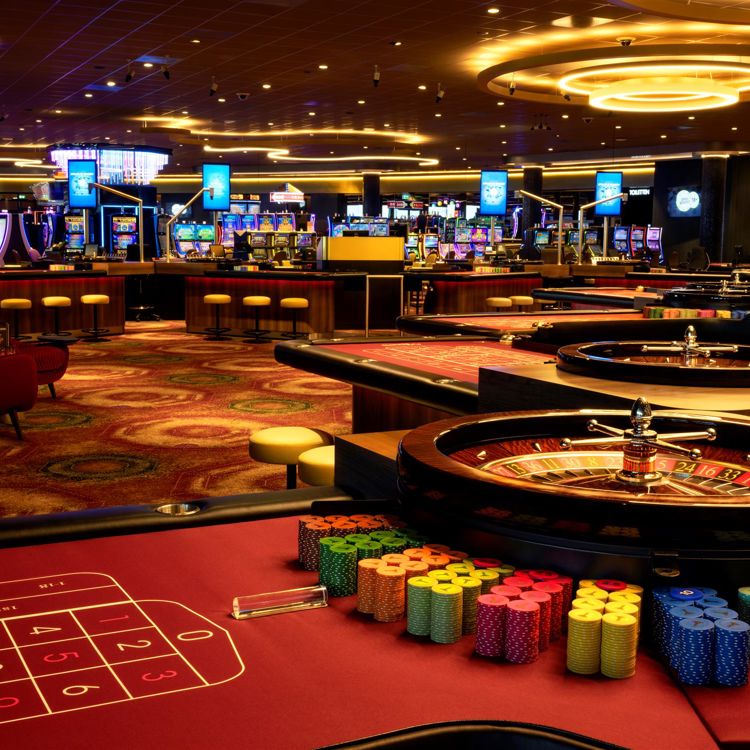The Evolution of Gambling: From Ancient Times to Present-Day Casino Gaming

Gambling has been an essential part of human entertainment for thousands of years, developing through cultures and eras to become the exciting casino activities we know today. From the historical Chinese and Romans, who engaged in various forms of gambling and chance, to the modern gaming floors of contemporary casinos, the attraction of risk and reward has fascinated individuals across the globe. The change from simple dice games and rudimentary betting setups to the extravagant environments of contemporary casinos reflects considerable strides in both social norms and technological.
As societies evolved, so too did the complexity of gambling activities, with gambling activities emerging as a unique category of leisure and excitement. These activities have changed from informal gatherings centered around wooden tables to expansive, lavish establishments designed to attract players. Today, we investigate this intriguing journey, examining how historical practices laid the foundation for the varied and thrilling casino activities that bring pleasure to countless people worldwide.
spintax
Ancient Wagering Practices
Wagering has deep roots in human history, with proof of games of chance tracing back to ancient civilizations. Archaeologists have discovered that as far back as 3000 BC, the Chinese were using basic forms of betting with dice made from wood. Similarly, ancient cultures of Mesopotamia engaged in gambling activities, often relying on the casting of lots or dice to determine results. These early forms of gambling served not only as amusement but also played crucial roles in social and cultural practices.
The people of Egypt also were involved in gambling activities, with games that included betting on the results of various events, including sports and religious festivals. Items such as dice and depictions of players from ancient tombs show that gambling was a frequent pastime. It provided both leisure and a means of engaging in social connections, often linked to celebratory occasions or significant gatherings. This activity revealed the universal appeal of chance and rivalry throughout the ages.
In ancient Rome, wagering became a prevalent practice among the people, as reflected by references in literature and the establishment of rules around certain games. Romans enjoyed a variety of gambling activities, from wagering on chariot races to playing games akin to modern-day board games. The legal structure surrounding these activities began to take shape, establishing the foundations for gambling regulations that would evolve in the centuries to come. The fame of gambling during this period set the stage for the development of gambling house games in the future.
The Progression of Casino Games
Casino games have gone through substantial transformations from their beginnings to the contemporary entertainment options. In historical civilizations, gaming was frequently associated to ceremonial practices, with games of dice found in Mesopotamia and betting on the outcomes of events in ancient Rome. These initial forms of gambling laid the groundwork for the formal games we see today. The transition from informal gambling to systematic games happened as societies began forming rules and venues for wagering, demonstrating cultural values and practices.
The medieval period saw the emergence of card games, which gained popularity among European nobility. Games like the first and the game baccarat became staples in social gatherings. The development of printing technology further aided the spread of playing cards, making them more reachable to the general public. As gambling houses began to multiply, these card games transformed into adaptations that catered to wider audiences, eventually leading to the creation of casinos as specialized venues for gaming.
The twentieth century marked a significant point in the development of casino games, with the rise of commercial casinos in Vegas and other betting centers. This era introduced games like slot machines and modern variations of table games, complete with advanced graphics and intricate betting structures. The introduction of online casinos in the tail end of the 1990s additionally transformed the gaming industry, allowing players to access a vast array of casino games from the safety of their homes. Today, gambling games persist to progress, blending time-honored elements with state-of-the-art technology to create engaging experiences for players worldwide.
Modern Gaming Regulations
In these years, the area of gaming laws has changed considerably, especially as tech advances and internet-based gambling have become more prevalent. Authorities around the world have enacted numerous laws and guidelines to guarantee that gaming activities are carried out justly, with responsibility, and openly. These regulations often cover factors such as permits, advertising, player protection, and sensible gaming measures. Authorities aim to minimize issues such as problem gambling and cheating while supporting a equitable gambling environment.
The rise of internet casinos has necessitated a different approach to regulation. Many legal areas have created specific online gambling structures that cater to internet-based gambling, allowing operators to offer their offerings within the law. These frameworks often demand operators to obtain licenses, follow strict safety standards, and provide assistance options to assist players. By closely monitoring online activities, authorities can better protect consumers from risks and make sure that gambling is conducted in a safe manner.
Furthermore, modern gambling laws are increasingly centering around sensible gaming strategies. Many gaming establishments and online sites now implement features such as player exclusion, deposit limits, and time-outs to help players control their gambling habits. Awareness campaigns aimed at educating about the dangers of gaming are also frequent. 58win As the sector continues to grow, the emphasis on responsible gambling remains a fundamental principle of regulatory efforts, showing a dedication to promoting a safe and enjoyable gambling experience for all players.
